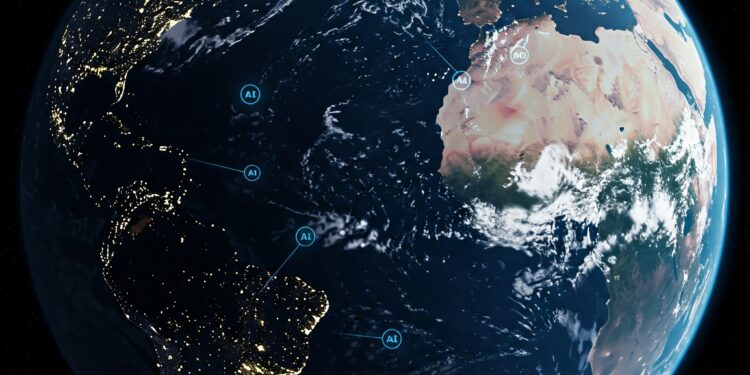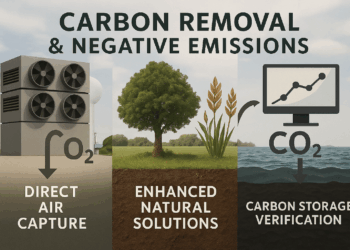In the fight against climate change, we often look to technological innovations in renewable energy or carbon capture. However, a less visible but equally transformative force is emerging artificial intelligence. AI is rapidly changing our ability to understand, predict, and mitigate the complex challenges of a warming planet.
One groundbreaking example is Google’s GraphCast, unveiled in 2024. This AI model boasts the ability to predict extreme weather events a staggering ten times faster than traditional methods. Imagine the implications: earlier and more accurate warnings for hurricanes, floods, and heatwaves, allowing communities and emergency services to prepare more effectively, potentially saving lives and minimizing damage. GraphCast’s speed and precision represent a paradigm shift in weather forecasting, offering a powerful tool in our arsenal against climate-related disasters.
Beyond predicting extreme weather, AI is also enhancing our ability to monitor and manage environmental changes in real-time. IBM’s Geospatial AI, for instance, is helping us track critical indicators like deforestation, methane leaks, and urban heat islands with unprecedented accuracy. By analyzing satellite imagery and other geospatial data, this technology provides invaluable insights for policymakers and conservationists, enabling them to make informed decisions and implement targeted interventions. Imagine using AI to pinpoint the exact location of a methane leak, allowing for immediate action to prevent further emissions.
The rapid advancements in AI offer a beacon of hope in the face of the climate crisis. From forecasting extreme weather with unprecedented speed to optimizing energy consumption in data centers, AI is proving to be an indispensable tool in our quest for a sustainable future. As we continue to develop and refine these technologies, it is crucial that we do so responsibly, ensuring that AI serves as a force for good in the fight against climate change.








